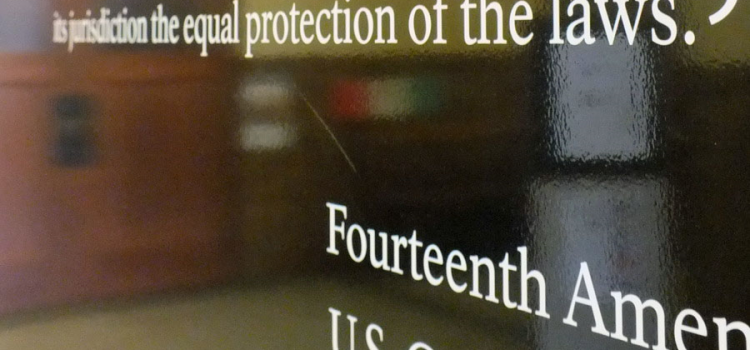In this video, Michael Pocock a lawyer correspondent on the Meidas Network expresses his delight at Baude and Paulsen’s white paper, “The Sweep and Force of Section 3” which argues that the 14th amendment to the Constitution prohibits Donald Trump from holding any federal office, including that of President as the clause forbids holding office by former office holders who then participate in insurrection or rebellion. Baude and Paulson are well known and respected judicial scholars and members of the Federalist Society and known supporters of the originalist doctrine of interpretation of the Constitution.They would seem not to be progressives and not natural opponents of the Republican Party.
The abstract is a powerful summary,
Section Three of the Fourteenth Amendment forbids holding office by former office holders who then participate in insurrection or rebellion. Because of a range of misperceptions and mistaken assumptions, Section Three’s full legal consequences have not been appreciated or enforced. This article corrects those mistakes by setting forth the full sweep and force of Section Three.
First, Section Three remains an enforceable part of the Constitution, not limited to the Civil War, and not effectively repealed by nineteenth century amnesty legislation. Second, Section Three is self-executing, operating as an immediate disqualification from office, without the need for additional action by Congress. It can and should be enforced by every official, state or federal, who judges qualifications. Third, to the extent of any conflict with prior constitutional rules, Section Three repeals, supersedes, or simply satisfies them. This includes the rules against bills of attainder or ex post facto laws, the Due Process Clause, and even the free speech principles of the First Amendment. Fourth, Section Three covers a broad range of conduct against the authority of the constitutional order, including many instances of indirect participation or support as “aid or comfort.” It covers a broad range of former offices, including the Presidency. And in particular, it disqualifies former President Donald Trump, and potentially many others, because of their participation in the attempted overthrow of the 2020 presidential election.
They argue that election officials may if not should, refuse to put his name on the ballot.
This story was also carried by MSNBC, in the Reidout, which I recommend viewing for the poetic way in which Joy Reid introduces the interview, starting from the Hollywood strike, and its tales of fantasy, to the dangerous application of these fantasies to modern US politics.
There is not great originality in this post and I have learnt that foreigners comment on the US politics are often unwelcome, but I think this should be read. It’s hard to find politicians with principles these days and when we find them, they need to be congratulated.
Baude, William and Paulsen, Michael Stokes, The Sweep and Force of Section Three (August 9, 2023). University of Pennsylvania Law Review, Vol. 172, 2024, Available at SSRN: https://papers.ssrn.com/sol3/papers.cfm?abstract_id=4532751
Image Credit: From wikimedia commons, authored by shutterbugsage, English: 14th Amendment sign at the entrance of the Brown v Board of Education Historical Site in Topeka, KS. …



